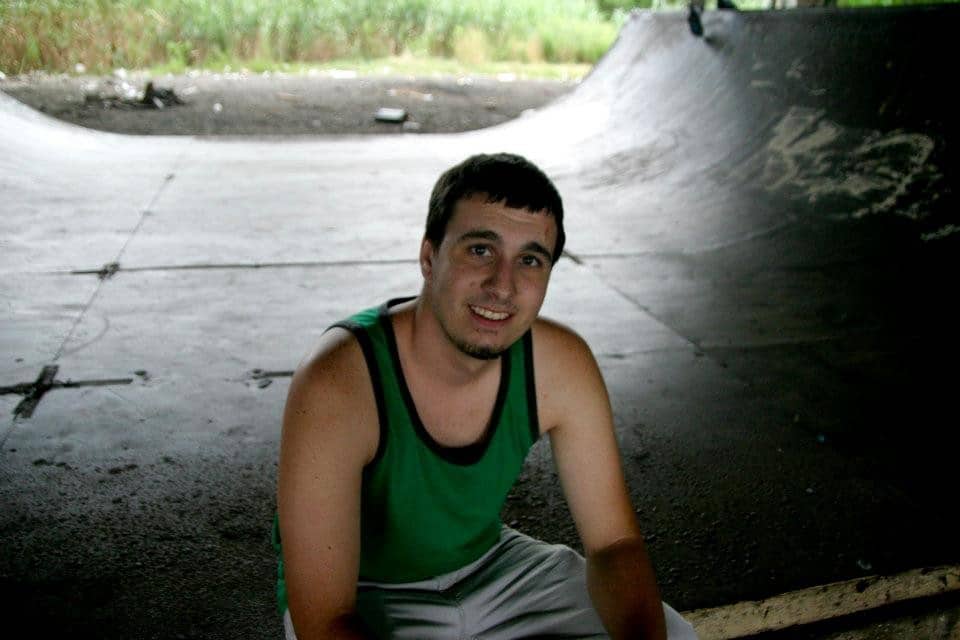I met Bobby in 2011, when we were both residents in a local recovery house. Bobby was 19 years old and I was 37, so it’s an understatement to say we had initial difficulty finding common ground. But over time we developed a close friendship, a bond which helped to lay the foundation for my recovery from opioid addiction and my path to wellness.
Bobby, whose last name I’m omitting to protect his family’s privacy, exhibited a genuineness rarely seen in the addiction/recovery world. He brought a childlike perspective into a house of pain, which was a catalyst for healing. It was not uncommon to see men in the house struggling with depression, and Bobby would typically be the guy who showed up with encouraging words and a hug. For some strange reason, he seemed able to enter therapeutic relationships with people the rest of us were excluded from.
A few years back I suffered a recurrence of problematic use (also known as a relapse) and lost touch with Bobby. I later learned that Bobby, like myself, had become a father, and that this event sparked an episode of depression and insecurity that also led him to resume problematic use, as it had with me years earlier.
I eventually found recovery again and began working in the recovery/harm reduction space. This past summer, I ran into Bobby at the local syringe service program in Philadelphia. He described how he had been struggling with opioid use disorder, and subsequently with homelessness.
In the second half of 2019, I began to visit Bobby regularly on the streets of Philadelphia where he was living, discussing available treatment options with him.
Beginning January 1, 2019, city public health officials implemented a ban on smoking at publicly funded addiction treatment programs (including outdoor spaces). Philadelphia ranks second among large US cities for overdose death rates. Advocates have long been concerned about the unintended consequences of this policy—namely, a rise in patients leaving treatment prematurely and increased barriers to their seeking treatment in the first place.
The greatest concern, in the context of Philadelphia’s fentanyl-adulterated drug supply, has been the increased overdose risk for patients who return to use, with lowered opioid tolerance, after a brief period of abstinence.
Every time we spoke, Bobby made it clear that he would not enter a treatment facility which prohibited smoking.
Bobby explained that he had entered a treatment facility in March 2019, three months into the smoking ban. But he had left against medical advice because the struggle to abstain from opioids and nicotine simultaneously had proven too difficult.
Every time we spoke, Bobby made it clear that he would not enter a treatment facility which prohibited smoking. One day I was sitting with him on an abandoned couch in a vacant lot where he lamented not being home with his children.
“I just want to stop. I don’t want to be out here anymore,” he said. “I miss my kids and want to be a good father, but it’s so hard and with this smoking ban, it’s just stupid and too much.” Although replacing cigarettes with vapes would have been a good option for him, the Philadelphia treatment smoking ban, unconscionably, also extends to vaping.
The last time I saw Bobby was late December. He was walking along Kensington Avenue with a large blanket around him, trying to keep warm in the subfreezing temperature. Even in the unbearable cold, he tearfully explained that quitting smoking was too difficult for him to consider while managing his opioid use disorder.
On January 31, I received a call telling me that Bobby had been found unconscious on the street. He was subsequently revived through CPR, but had been down too long without oxygen and suffered irreparable brain damage, resulting in brain death. Bobby then became an organ and tissue donor. He was 28 years old and had a young son and two daughters.
“We are continuing to make a significant investment in health outcomes for Philadelphians,” David T. Jones, the commissioner of Philadelphia’s Department of Behavioral Health and Intellectual Disability Services, told Filter last year. “We know that tobacco utilization is the #1 killer throughout the United States and we’re invested in saving lives.”
Smoking does kill in the long term, but people using fentanyl-adulterated street drugs are at risk of dying right now. In the course of my work, I have heard countless times from people experiencing homelessness and drug addiction that they will not enter treatment if they cannot smoke. They consciously and knowingly accept the risk of continued illicit drug use, preferring to preserve their autonomy rather than enter a nicotine-free facility.
It is impossible to identify how many of the city’s fatal overdose victims refused treatment due to the smoking ban, or how many were patients who left against medical advice. They all matter.
But with Bobby, it was personal for me. He and I had many conversations about going into treatment, and many more about how the restriction on smoking was a deal-breaker. Bobby remained on the streets because of the ban, and he died on those streets as a result.
City officials neglected to consider the slow, progressive nature of personal change—or the absurdly high bar of expecting people to quit nicotine at the same time as other drugs.
His tragic death was entirely preventable, and it is an indictment on policymakers—one that I hope brings humility and repentance.

Harm reduction advocates have been outspoken against the smoking ban since its inception. The opioid-involved overdose crisis claims over 1,100 lives annually in Philadelphia. As Brooke Feldman wrote for Filter last year, this is a time when barriers need to be dismantled—not erected.
Lives depend on this. Children like Bobby’s are relying on obstacles being removed so their parents’ lives can be saved. Banning smoking in treatment programs—an activity in which a large percentage of people struggling with drug addiction engage—is a deeply regressive move that prompts head-scratching from anyone who has spent time in Philadelphia’s drug-user community.
In their zeal for “investing in health outcomes for Philadelphians,” city public health officials neglected to consider the slow, progressive nature of personal change—or the absurdly high bar of expecting people to quit nicotine at the same time as other drugs. In assuming they knew what was best for people, they grossly ignored how personal agency and autonomy are the primary drivers of change.
Their paternalistic decision cost Bobby—among others—his life. It stripped two parents of their son and three small children of their father, and left a woman a single parent.
It is long past due for Philadelphia to repeal this cruel and counterproductive smoking ban.
Photographs of Bobby courtesy of Bill Kinkle/Bobby’s family.





Show Comments